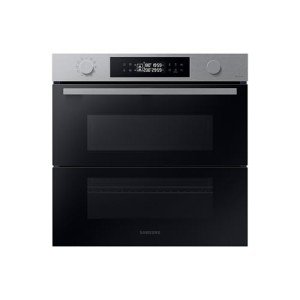Why You'll Want To Learn More About Kitchen With Built In Oven
페이지 정보
작성자 Coy Baumann 댓글 0건 조회 42회 작성일 25-05-20 03:22본문
The Benefits and Design Considerations of a Kitchen with a Built-In Oven
In modern kitchen style, built-in intergrated ovens have actually ended up being a prominent function, offering both functionality and looks that cater to modern-day lifestyles. This post looks into the benefits of including a built-in oven into the kitchen area and highlights necessary design considerations to guarantee a cohesive and useful kitchen environment.
Comprehending Built-In Ovens
Built-in ovens are developed to be seamlessly integrated into kitchen cabinetry, which distinguishes them from traditional freestanding ovens. These appliances are available in different configurations, consisting of single-wall ovens, double-wall ovens, and even microwave ovens that share the same integrated ovens and hobs cabinet area.
Typical Types of Built-In Ovens
| Type | Description | Ideal Use |
|---|---|---|
| Single Wall Oven | A basic oven with one compartment for baking and roasting. | Small kitchen areas or daily baking. |
| Double Wall Oven | 2 different oven compartments enabling for synchronised cooking. | Large families or regular bakers. |
| Combination Oven | A microwave and conventional oven in one unit. | Quick meals and versatile cooking options. |
| Steam Oven | An oven developed particularly for steam cooking. | Health-focused cooking and detailed dishes. |
Benefits of Built-In Ovens
The appeal of built-in ovens can be credited to a number of crucial advantages, consisting of:
1. Area Efficiency
Built-in ovens are created to fit within existing kitchen cabinetry, maximizing valuable floor area. This feature is particularly useful in smaller cooking areas, where every square foot counts.
2. Structured Appearance
The seamless integration of a built-in oven creates a sleek appearance in the kitchen. Offered in numerous surfaces, built-in ovens can match or match kitchen cabinetry, offering a modern-day and unified design aesthetic.
3. Enhanced Functionality
Built-in ovens often offer innovative functions, such as wise innovation, multiple cooking modes, and even self-cleaning options. This can enhance cooking experiences and improve the effectiveness of meal preparation.
4. Improved Accessibility
With appropriate installation of a built-in oven, users can increase ease of access, avoiding the need to flex over to reach a lower oven compartment. Eye-level cooking appliances enable cooks to monitor their meals easily and reduce the danger of burns from flexing down to inspect on a baking item.
5. Energy Efficiency
Lots of contemporary built-in ovens make use of innovative cooking innovation that can cause lower energy usage. Functions like convection cooking can decrease cooking times while guaranteeing even heating, ultimately conserving energy.
Design Considerations for a Kitchen with Built-In Ovens
While built-in ovens provide many advantages, careful consideration in the style phase is important to maximize their advantages and incorporate them efficiently into the kitchen design. Here are some crucial elements to think about:
1. Cabinet Configuration
When preparing for a built-in oven, homeowners need to thoroughly consider cabinet layouts and setups. Adequate ventilation is vital for correct operation. It's necessary to leave enough area for air flow, which can differ depending on the oven model.
2. Height Preference
The installation height of the oven need to be figured out based upon the main users. A built-in oven situated at eye level can make it easier to utilize, especially for those who frequently prepare.
3. Complementary Appliances
In a kitchen setting, built-in ovens frequently match other built-in appliances such as microwave and warming drawers. Selecting appliances that work well together can further enhance the kitchen's design.
4. Aesthetic Choices
Selecting finishes and colors that harmonize with the overall kitchen style is essential. built in oven-in ovens are offered in various alternatives, consisting of stainless-steel, black, and even customized cabinet finishes that can disappear effortlessly into the cabinets.
5. Budget Considerations
built in ovens for sale-in ovens can range significantly in rate, from economical alternatives to high-end designs filled with features. It's vital to set a realistic spending plan that permits for the wanted specs without compromising the overall kitchen renovation.
Frequently asked questions
1. What is the difference in between a built-in oven and a freestanding oven?
Built-in ovens are integrated into cabinets and offer a smooth look, while freestanding ovens are standalone units that can be moved quickly.
2. Do built-in ovens require professional setup?
Yes, built-in ovens generally need expert installation due to their combination with kitchen cabinetry and electrical requirements.
3. Are built-in ovens more expensive than standard ovens?
In basic, built-in ovens can be more costly due to their installation process and advanced functions, but there are lots of alternatives available to match differing spending plans.
4. How do I keep a built-in oven?
Routine cleansing and upkeep, such as using the self-clean function, examining seals, and built-in ovens ensuring appropriate ventilation, are important for keeping a built-in oven.

5. Can built-in ovens be utilized in smaller sized kitchen areas?
Yes, built-in ovens can be beneficial in smaller sized kitchen areas because they optimize area performance and can be installed at eye level for convenience.
Integrating a built-in oven into a kitchen design is an excellent choice for improving performance and aesthetics. By thinking about the design tips and benefits gone over in this article, homeowners can produce a harmonious kitchen space that accommodates their cooking needs while looking elegant and stylish. Whether renovating an existing kitchen or creating a brand-new one, built-in ovens supply a level of elegance and functionality that lines up seamlessly with modern cooking practices.
댓글목록
등록된 댓글이 없습니다.


